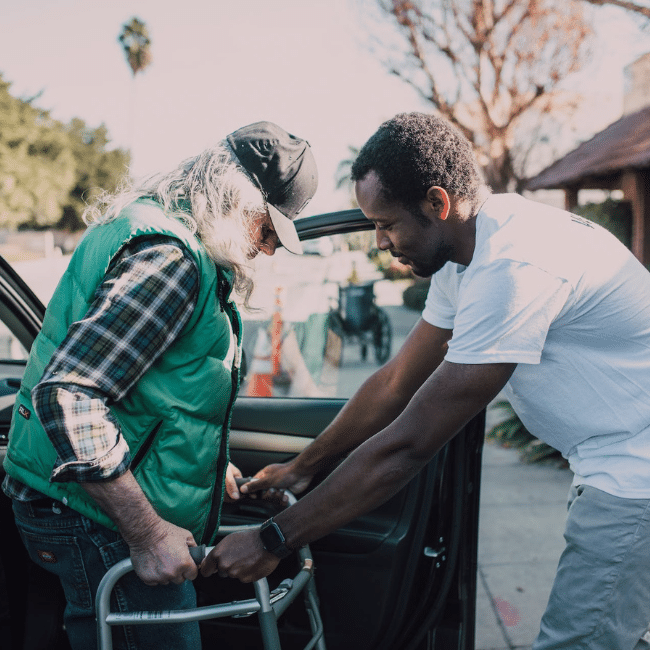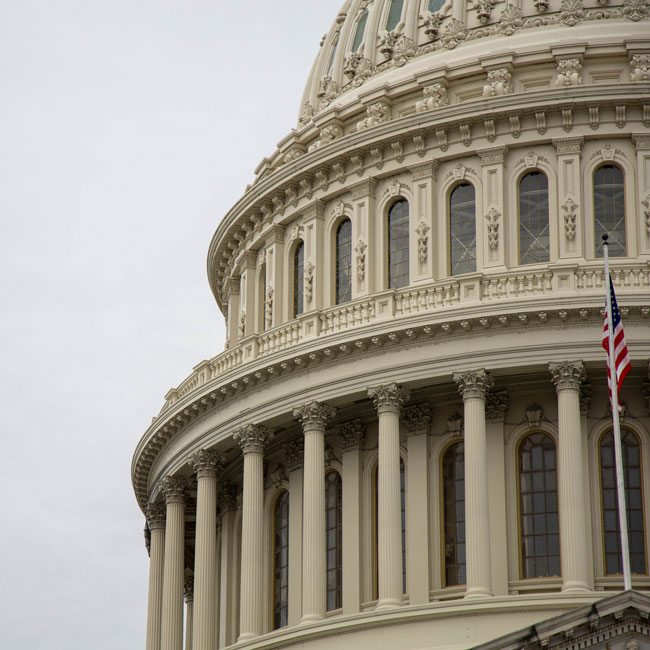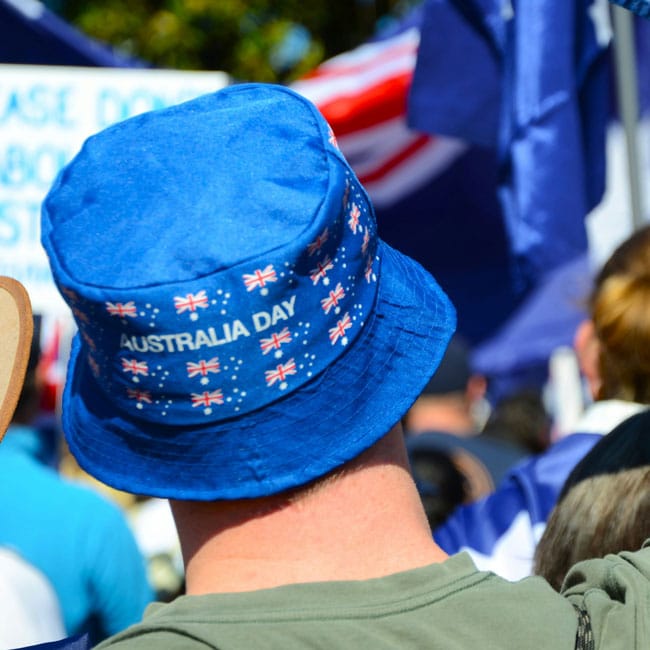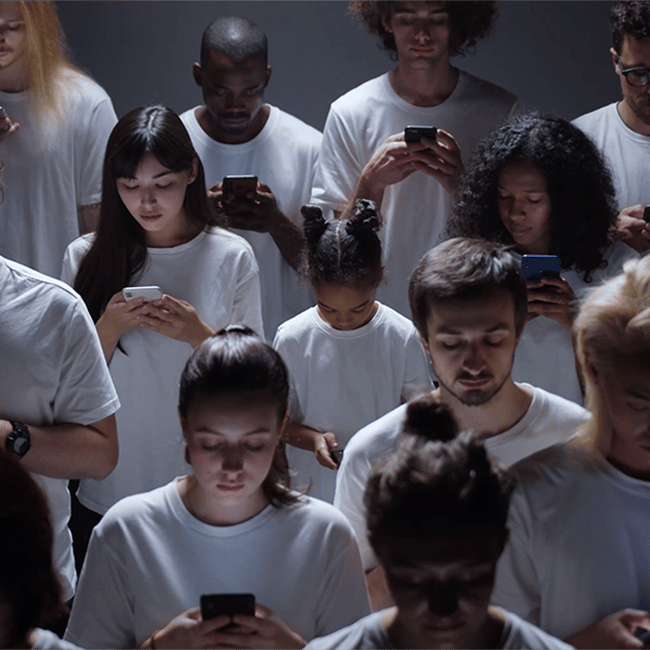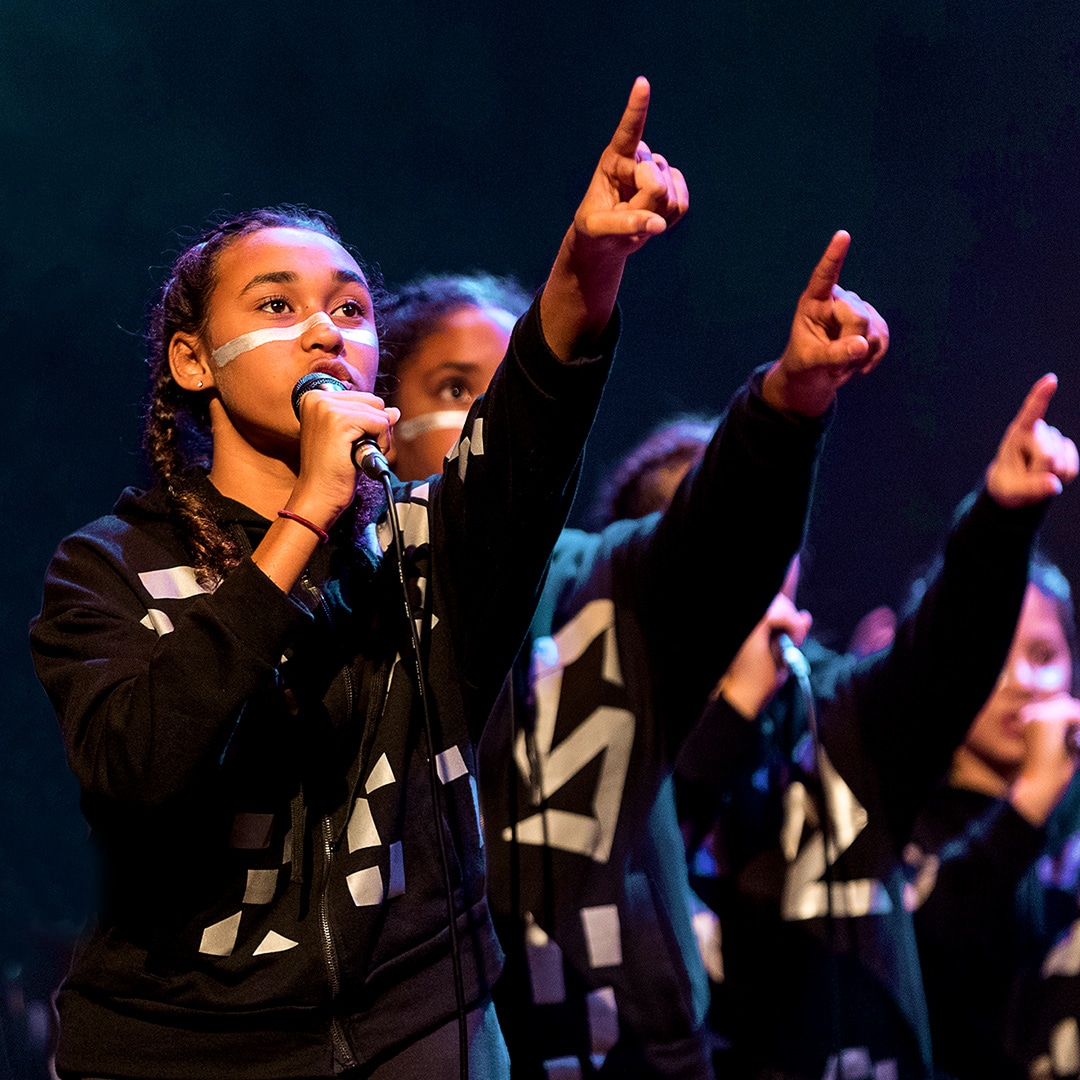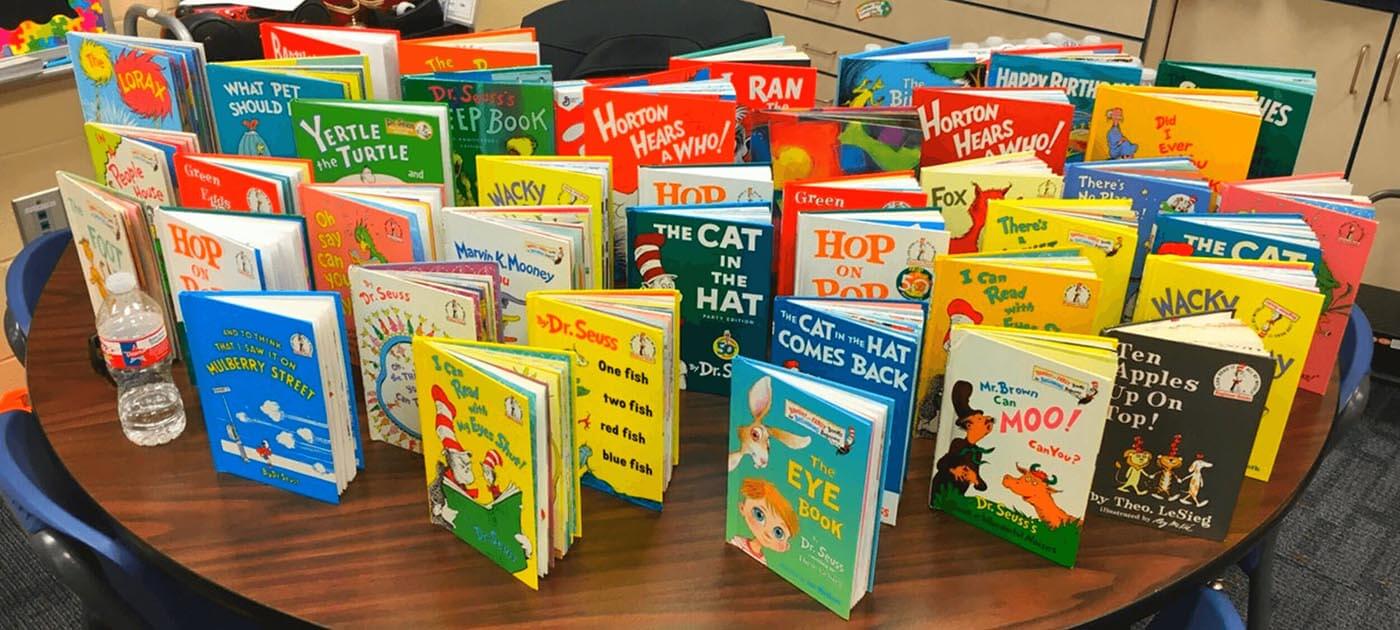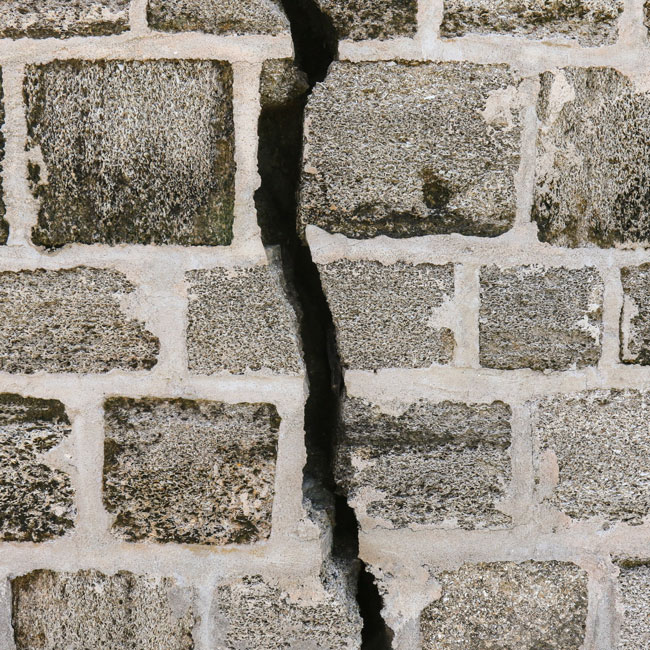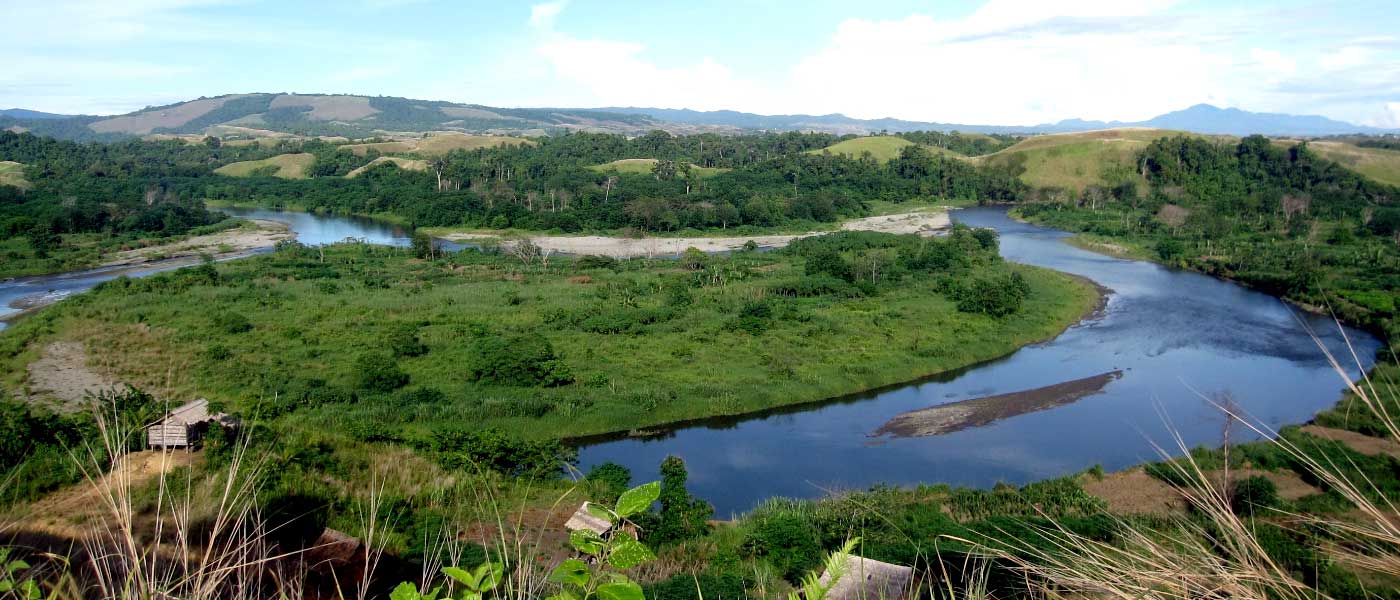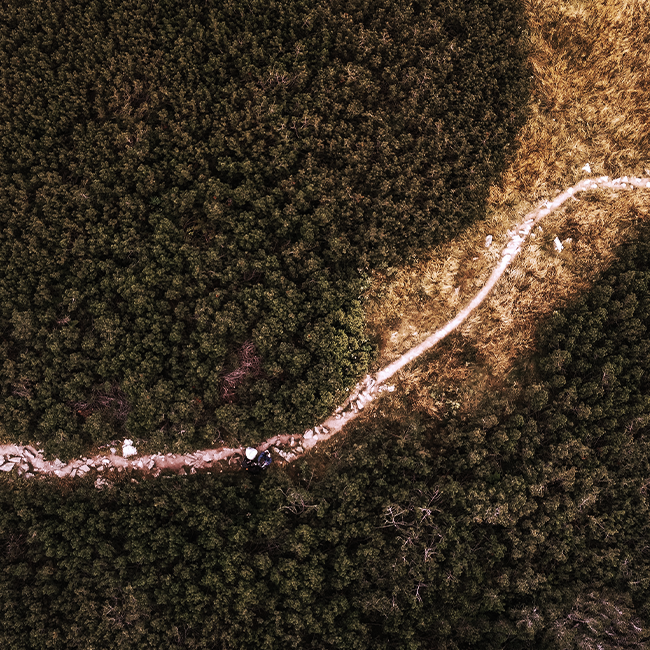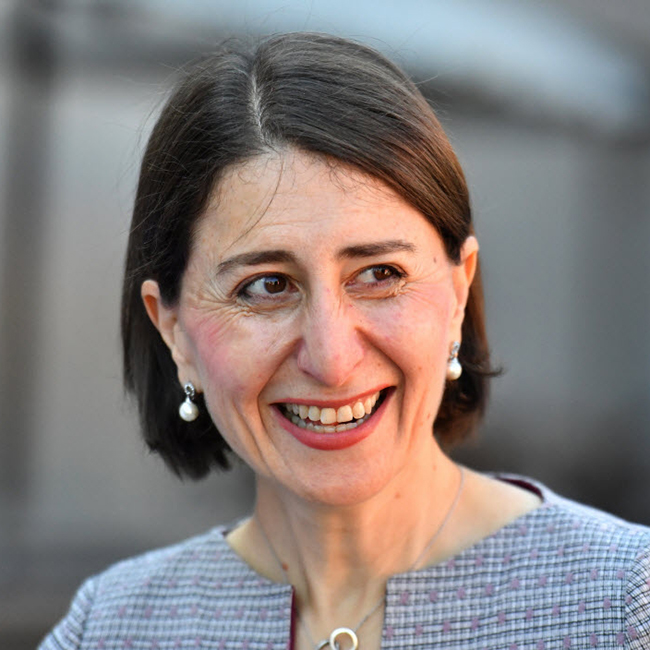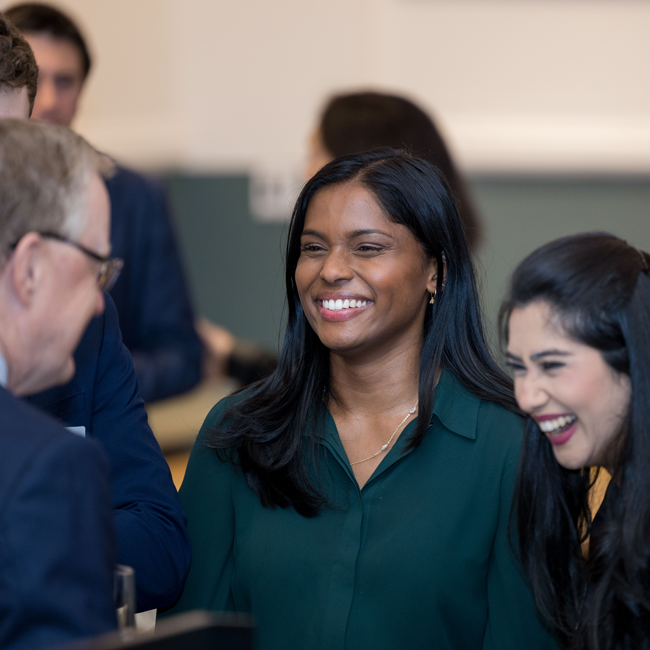Tim Soutphommasane on free speech, nationalism and civil society

Tim Soutphommasane on free speech, nationalism and civil society
Opinion + AnalysisBusiness + LeadershipPolitics + Human RightsRelationships
BY The Ethics Centre 18 FEB 2021
We believe conversations matter. So when we had the opportunity to chat with Tim Soutphommasane we leapt at the chance to explore his ideas of a civil society. Tim is an academic, political theorist and human rights activist. A former public servant, he was Australia’s Race Discrimination Commissioner at the Australian Human Rights Commission from 2013 – 2018 and has been a guest speaker at the Festival of Dangerous Ideas. Now a professor at Sydney University, he shared with The Ethics Centre his thoughts on the role of the media, free speech, racism and national values.
What role should the media play in supporting a civil society?
The media is one place where our common life as a society comes into being. It helps project to us our common identity and traditions. But ideally media should permit multiple voices, rather than amplify only the voices of the powerful. When it is dominated by certain interests, it can destroy rather than empower civil society.
How should a civil society reckon with the historical injustices it benefits from today?
A mature society should be able to make sense of history, without resorting to distortion. Yet all societies are built on myths and traditions, so it’s not easy to achieve a reckoning with historical injustice. But, ultimately, a mature society should be able to take pride in its achievements and be critical of its failings – all while understanding it may be the beneficiary of past misdeeds, and that it may need to make amends in some way.
Should a civil society protect some level of intolerance or bigotry?
It’s important that society has the freedom to debate ideas, and to challenge received wisdom. But no freedom is ever absolute. We should be able to hold bigotry and intolerance to account when it does harm, including when it harms the ability of fellow citizens to exercise their individual freedoms.
What do you think we can do to prevent society from becoming a ‘tyranny of the majority’?
We need to ensure that we have more diverse voices represented in our institutions – whether it’s politics, government, business or media.
What is the right balance between free speech and censorship in a civil society?
Rights will always need to be balanced. We should be careful, though, to distinguish between censorship and holding others to account for harm. Too often, when people call out harmful speech, it can quickly be labelled censorship. In a society that values freedom, we naturally have an instinctive aversion to censorship.
How can a society support more constructive disagreement?
Through practice. We get better at everything through practice. Today, though, we seem to have less space or time to have constructive or civil disagreements.
What is one value you consider to be an ‘Australian value’?
Equality, or egalitarianism. As with any value, it’s contested. But it continues to resonate with many Australians.
Do you believe there’s a ‘grand narrative’ that Australians share?
I think a national identity and culture helps to provide meaning to civic values. What democracy means in Australia, for instance, will be different to what it means in Germany or the United States. There are nuances that bear the imprint of history. At the same time, a national identity and culture will never be frozen in time and will itself be the subject of contest.
And finally, what’s the one thing you’d encourage everyone to commit to in 2021?
Talk to strangers more.
To read more from Tim on civil society, check out his latest article here.
Tim Soutphommasane is a political theorist and Professor in the School of Social and Political Sciences, The University of Sydney, where he is also Director, Culture Strategy. From 2013 to 2018 he was Race Discrimination Commissioner at the Australian Human Rights Commission. He is the author of five books, including The Virtuous Citizen (2012) and most recently, On Hate (2019).
This project is supported by the Copyright Agency’s Cultural Fund.
Ethics in your inbox.
Get the latest inspiration, intelligence, events & more.
By signing up you agree to our privacy policy
You might be interested in…
Opinion + Analysis
Relationships, Society + Culture
I’m really annoyed right now: ‘Beef’ and the uses of anger
Explainer
Relationships
Ethics Explainer: Perfection
Explainer, READ
Relationships, Society + Culture
Ethics Explainer: Shame
Explainer, READ
Relationships
Ethics Explainer: Altruism
Join our newsletter
BY The Ethics Centre
The Ethics Centre is a not-for-profit organisation developing innovative programs, services and experiences, designed to bring ethics to the centre of professional and personal life.
Settler rage and our inherited national guilt

Settler rage and our inherited national guilt
Opinion + AnalysisPolitics + Human Rights
BY Sarah Maddison 21 JAN 2021
Professor Marcia Langton offers a distinctive term for settler-Australian racism towards Aboriginal and Torres Strait Islander peoples. She calls it the ‘settler mentality’. In her FODI Digital lecture Langton suggests that the experience of living unjustly on stolen Indigenous lands has produced in settler Australians a ‘peculiar hatred’ expressed through ‘settler rage against the people with whom they will not treat.’
While Langton observes the manifold evidence of ‘classical, formal racism’, she maintains that the underlying problem in Australia is ‘a settler population that cannot come to terms with its Indigenous population.’ Here, Langton touches upon a long running debate among scholars seeking to understand the ongoing conflict in Indigenous-settler relations. For some, race—and racism—are the primary lens for understanding both historical and contemporary injustice.
On this view, colonialism is in service to racism, enabling a white supremacist nation to take root on this continent. There is an abundance of evidence to support that claim, for example in the history of eugenicist practices in Australia including the ‘degrees of blood’ that for decades were used to justify the separation Aboriginal and Torres Strait Islander children from their families.
But for me there has always been more weight to support the counter view expressed by Langton.
Racism is real, certainly, but it operates in service to colonialism.
Colonialism cares less about the skin colour of the peoples it dispossesses and far more about accessing and controlling their land. It is in pursuit of land and the resources in and of that land that colonisers everywhere have committed atrocities against Indigenous peoples.
Australia is no exception. It is colonisation and the subsequent failure to negotiate treaties with First Nations on this continent that give rise to the settler state’s moral and legal illegitimacy. Colonisation is violent—no people anywhere in the world have been dispossessed of their land peacefully, and again, Australia is no exception.
Despite the state’s steadfast refusal to properly acknowledge this history, the evidence of over a century of frontier warfare is no secret. It never has been.
In her address, Langton mentions Australian historian Henry Reynolds’ book, This Whispering in Our Hearts, about those who recognised the injustices being perpetrated and were prepared to contest the violence of colonisation.
Langton points out that these settlers were well aware that they had ‘committed a monstrous crime’ and suggests that the criminality of the settler has produced in them a trauma similar to the kind that the German population had to deal with in the wake of the horrors of World War II. In making this comparison Langton references the German academic and novelist Bernhard Schlink’s famous novel The Reader.
In my own work I have drawn on another of Schlink’s books, the non-fiction volume Guilt About the Past, in which he unpacks the way in which the crimes of previous generations infect more than the generation that lives through the era (in his case Nazi Germany).
Schlink argues that guilt about the past also ‘casts a long shadow over the present, infecting later generations with a sense of guilt, responsibility and self-questioning.’ Schlink suggests subsequent generations create their own guilt when, in the face of evidence of past atrocities, they maintain a bond of solidarity with the perpetrators by failing to renounce their actions.
Australian national identity rests on the fantasy that the continent was virtually empty of people when the British arrived and went on to be peacefully settled.
Despite mounting scientific and historical evidence of the sophistication of Indigenous societies, the myth persists that Aboriginal and Torres Strait Islander peoples were ‘primitive’ and backward, and that colonisation brought them the benefits of Western ‘civilisation’.
Settlers hang onto these wrongheaded ideas as a means of justifying our presence and denying the horrors that accompanied dispossession. There is no easy path for reckoning with our forefathers’ crimes, there cannot really be redemption.
If we are here illegitimately then where do we properly belong? If the land is not ours then where should we live? If our presence here is the result of massacre and genocide how do we even begin to make that right?
And so the bonds of solidarity with the original perpetrators live on, deep within settler DNA. For every revelation of past atrocity there will be a critic ready to deny the harms done.
For every proposal to make amends for the past through more just relations today, there is a politician or a journalist ready to defend Australia’s colonial history as a sad but inevitable chapter on the road to modernity. For every call that we not celebrate our national day on the day the atrocities began for Indigenous peoples there is a chorus of criticism in defense of nationalism and ‘Australian identity.’
These responses are damaging to both settler and Indigenous peoples.
While Indigenous peoples are left still to struggle for justice, settlers are left with paralysis.
The peculiar hatred that Langton describes is like a poison in settler society. This poison makes us brittle, defensive, unkind, and greedy, unwilling to give up any of the wealth we have gained through atrocity and dispossession.
Yet even as it makes us sick, still we drink the poison up. This has been the settler’s choice since this continent was first invaded. We can, however, make a different choice. The antidote to the poison of settler society is justice, and it is not beyond our reach.
This project is supported by the Copyright Agency’s Cultural Fund.
Ethics in your inbox.
Get the latest inspiration, intelligence, events & more.
By signing up you agree to our privacy policy
You might be interested in…
Big thinker
Politics + Human Rights, Relationships
Big Thinker: Dennis Altman
Opinion + Analysis
Business + Leadership, Politics + Human Rights
We are on the cusp of a brilliant future, only if we choose to embrace it
Opinion + Analysis
Politics + Human Rights
Sportswashing: How money and politics are corrupting sport
Opinion + Analysis
Politics + Human Rights, Relationships
Assisted dying: 5 things to think about
Join our newsletter
BY Sarah Maddison
Sarah Maddison is an Australian author and Professor of Politics in the School of Social and Political Sciences at the University of Melbourne where she also co-directs the Indigenous Settler Relations Collaboration. She is a former Director of GetUp! and the 2018-19 president of the Australian Political Studies Association.
Your kid’s favourite ethics podcast drops a new season to start 2021 right

Your kid’s favourite ethics podcast drops a new season to start 2021 right
Opinion + AnalysisHealth + Wellbeing
BY Matthew Beard 21 JAN 2021
If your kids are anything like mine, the holidays have officially hit the ‘we’ve dragged on too long’ stage.
Your children drift like bored zombies from room to room, looking for another screen or toy to give them a fresh dopamine hit.
They don’t want to admit it, but they’re ready for school to go back. You’re all hanging out for that first day.
Good news! You can stop waiting. You don’t need to let the boredom drag on until school goes back. You can get your child’s – and your own – synapses firing right now and sharpen your ethical sensibilities in the process, thanks to a new season of Short & Curly, the award-winning, chart-topping ethics podcast produced by the ABC, and featuring Ethics Centre fellow Matt Beard (that’s me).
The podcast, now in its 13th season, is a playful, light-hearted and engaging exploration of ethics. It’s driven by the central belief that ethics is a team sport, and each twenty-minute episode features a number of ‘thinking questions’ where listeners are encouraged to pause the show to talk about some big ideas with the people around them. This isn’t just a podcast for your kids – it’s one for you as well!
The latest season comprises of five episodes on a wide range of topics and settings, including:
- A class being held back by an angry teacher hell-bent on finding out who stole her cookies, prompting us to ask: is collective punishment is ever justified?
- An impromptu beach trip is cancelled thanks to a fear of sharks – should we cull sharks to make sure that swimmers can enjoy the ocean free of fear?
- Frozen and The Avengers turn a casual trivia night into a discussion of one of the oldest questions in ethics: do the ends ever justify the means?
- As the Amazon – the lungs of the world – continues to burn, putting all of us an increased threat to climate change, we go on a tour of the Amazon and ask who owns the rainforest, and who should decide how to treat it?
- We take a tour of the wonderful world of robots! Looking at the various ways that robots could replace humans in the future, and ask whether or not they should.
One of the pitfalls of parenting is making ‘doing the right thing’ seem like the opponent of fun. If our kids see ethics as more closely connected to discipline than it is to curiosity, we risk setting them up for a mode of thinking that doesn’t serve them or the world they’ll help build.
Whether or not you’re tuning into the podcast, try to make imagination, creativity and curiosity your default settings when discussing ethics with your kids. Do your best not to close off discussion by giving your ‘authoritative’ view. Discussions don’t work well under hierarchies. And if you need some more pointers, check out our handy guide to talking to kids about ethics here.
Oh, and there may be some extremely bad rapping in one of the episodes. I won’t tell you which one, but be on the lookout!
Ethics in your inbox.
Get the latest inspiration, intelligence, events & more.
By signing up you agree to our privacy policy
You might be interested in…
Opinion + Analysis
Business + Leadership, Health + Wellbeing
Tips on how to find meaningful work
Opinion + Analysis
Health + Wellbeing, Politics + Human Rights, Relationships, Science + Technology
The value of a human life
Opinion + Analysis
Health + Wellbeing, Society + Culture
Alpha dogs and the toughness trap: How we can redefine modern masculinity
Explainer
Health + Wellbeing, Relationships
Ethics Explainer: Eudaimonia
Join our newsletter
BY Matthew Beard
Matt is a moral philosopher with a background in applied and military ethics. In 2016, Matt won the Australasian Association of Philosophy prize for media engagement. Formerly a fellow at The Ethics Centre, Matt is currently host on ABC’s Short & Curly podcast and the Vincent Fairfax Fellowship Program Director.
No justice, no peace in healing Trump's America
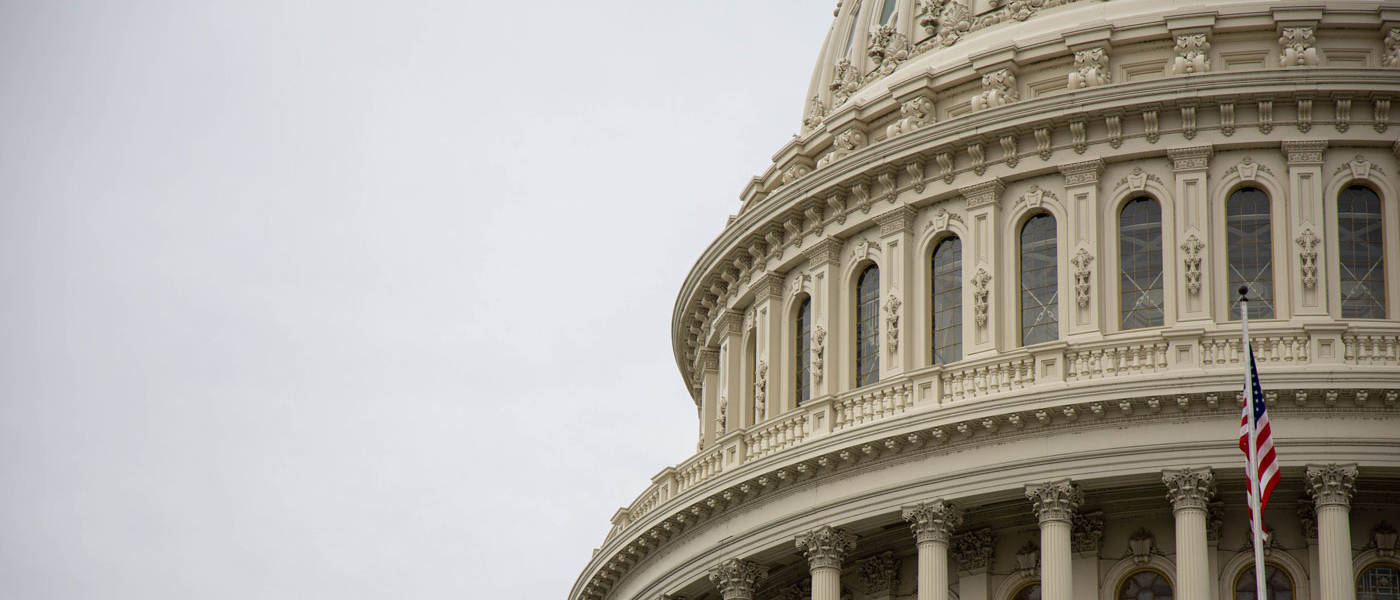
No justice, no peace in healing Trump’s America
Opinion + AnalysisBusiness + LeadershipPolitics + Human Rights
BY Simon Longstaff 21 JAN 2021
What fate should be reserved for Donald Trump following his impeachment by the US House of Representatives for his role in inciting insurrection?
Trump’s rusted-on supporters believe him to be without blame and will continue to lionise him as a paragon of virtue. Trump’s equally rusted-on opponents see only fault and wish him to be ground under the heel of history.
However, there is a large body of people who approach the question with an open mind – only to remain genuinely confused about what should come next.
On the one hand, there is an abiding fear that punishing Trump will fan the flames that animate his angry supporters elevating Trump’s status to that of ‘martyr-to-his-cause’. Rather than bind wounds and allow the process of healing to begin, the divisions that rend American society will only be deepened.
On the other hand, people believe that Trump deserves to be punished for violating his Oath of Office. They too want the wounds to be bound – but doubt that there can be healing without justice. Only then will people of goodwill be able to come together and, perhaps, find common ground.
There is merit in both positions. So, how might we decide where the balance of judgement should lie?
To begin, I think it unrealistic to hope for the emergence of a new set of harmonious relationships between the now three warring political tribes, the Republicans, Democrats and Trumpians. The disagreements between these three groups are visceral and persistent.
Rather than hope for harmony, the US polity should insist on peace.
Indeed, it is the value of ‘peace’ that has been most significantly undermined in the weeks since the Presidential election result was called into question by Donald Trump and his supporters. Rather than anticipate a ‘peaceful transition of power’ – which is the hallmark of democracy – the United States has been confronted by the reality of violent insurrection.
As it happens, I think that President Trump’s recent conduct needs to be evaluated against an index of peace – not just in general terms but specifically in light of what occurred on January 6th when a mob of his supporters, acting in the President’s name, broke into and occupied the US Capitol buildings – spilling blood and bringing death inside its hallowed chambers.
There is a particular type of peace that can be traced back to the Anglo-Saxon legal codes that provide the foundation for many of the laws we take for granted today. The King’s Peace originally applied to the monarch’s household – not just the physical location but also the ruler, their family, friends and retainers. It was a serious crime to disturb the ‘King’s Peace’. Over time, the scope of the King’s Peace was extended to cover certain times of the year and a wider set of locations (e.g. all highways were considered to be subject to fall under the King’s jurisdiction). Following the Norman Conquest, there was a steady expansion of the monarch’s remit until it covered all times and places – standing as a general guarantee of the good order and safety of the realm.
The relevance of all of this to Donald Trump lies in the ethical (and not just legal) effect of the King’s Peace. Prior to its extension, whatever ‘justice’ existed was based on the power of local magnates. In many (if not most places) disputes were settled on the principle of ‘might was right’.
The coming of the King’s Peace meant that only the ruler (and their agents) had the right to settle disputes, impose penalties, etc. The older baronial courts were closed down – leaving the monarch as the fountainhead of all secular justice. In a nutshell, individuals and groups could no longer take the law into their own hands – no matter how powerful they might be.
These ideas should immediately be familiar to us – especially if we live in nations (like the US and Australia) that received and have built upon the English Common Law. It is this idea that underpins what it means to speak of the Rule of Law – and everything, from the framing of the United States Constitution to the decisions of the US Supreme Court depend on our common acceptance that we may not secure our ends, no matter how just we think our cause, through the private application of force.
As should by now be obvious, those who want to forgive Donald Trump for the sake of peace are confronted by what I think is an insurmountable paradox. Trump’s actions fomented insurrection of the kind that fundamentally broke the peace – indeed makes it impossible to sustain. The insurrectionists took the law into their own hands and declared that ‘might is right’ … and they did so with the encouragement of Donald Trump and those who stood by him and whipped up the crowd in the days leading up to and on that fateful day when the Capitol was stormed.
There literally can be no peace – and therefore no healing – unless the instigators of this insurrection are held to account.
Finally, this is not to say that Donald Trump must suffer his punishment. There is no need for retribution or a restoration, through suffering, of a notional balance between ‘right’ and ‘wrong’. It may be enough to declare Donald Trump guilty of the ‘high crime and misdemeanour’ for which he was impeached. And if he remains without either shame or remorse, then it may also be necessary to protect the Republic from him ever again holding elected office – not to harm him but, instead, to protect the body politic.
Given all of this, I think that healing is possible … but only if built on a foundation of peace based on justice without retribution.
Ethics in your inbox.
Get the latest inspiration, intelligence, events & more.
By signing up you agree to our privacy policy
You might be interested in…
Opinion + Analysis
Society + Culture, Politics + Human Rights
What it means to love your country
Opinion + Analysis
Health + Wellbeing, Business + Leadership
Teachers, moral injury and a cry for fierce compassion
Opinion + Analysis
Health + Wellbeing, Business + Leadership
The ethics of workplace drinks, when we’re collectively drinking less
Opinion + Analysis
Business + Leadership, Politics + Human Rights
We are on the cusp of a brilliant future, only if we choose to embrace it
BY Simon Longstaff
Simon Longstaff began his working life on Groote Eylandt in the Northern Territory of Australia. He is proud of his kinship ties to the Anindilyakwa people. After a period studying law in Sydney and teaching in Tasmania, he pursued postgraduate studies as a Member of Magdalene College, Cambridge. In 1991, Simon commenced his work as the first Executive Director of The Ethics Centre. In 2013, he was made an officer of the Order of Australia (AO) for “distinguished service to the community through the promotion of ethical standards in governance and business, to improving corporate responsibility, and to philosophy.” Simon is an Adjunct Professor of the Australian Graduate School of Management at UNSW, a Fellow of CPA Australia, the Royal Society of NSW and the Australian Risk Policy Institute.
Elf on the Shelf is a fun and festive way to teach your child to submit to the surveillance state

Elf on the Shelf is a fun and festive way to teach your child to submit to the surveillance state
Opinion + AnalysisRelationships
BY Matthew Beard 15 DEC 2020
Imagine if every school in Australia introduced comprehensive surveillance technology coupled with facial recognition, and was able to assign a score to each student based on how good a “school citizen” they were.
Students could access an app that provided them with feedback on things they’d done, or failed to do, throughout the day. The day-to-day data could then be collected and a general character assessment made of the child on, let’s say, a year-by-year basis. At the end of the year, maybe at presentation night, students would be told if they’d been “good” school citizens or not.
I’m going to go out on a limb and suggest most people would find this idea pretty repugnant. Many would see echoes of China’s oppressive social credit system. Words like “Orwellian” would be thrown around with reckless abandon.
Just don’t tell that to the families around the world for whom Christmas involves a character check from Santa Claus. Certainly don’t tell the 11 million-odd who have “adopted’” an Elf on the Shelf and will have dusted it off for the season.
If you haven’t heard of it, the Elf on the Shelf explains how Santa is able to see you when you’re sleeping and know when you’re awake. Manufactured by Creatively Classic Activities and Books, the Elf on the Shelf is a tool used by families to add some more wonder and fun to the Christmas season.
Parents move the elf around, and kids look to see where it will appear next. They’re often also told that because they don’t know where the elf is or what the elf is watching, they’d better make sure they’re behaving themselves. After all, the elf’s job is to report back to Santa.
That’s right. Santa has an army of tiny, surprisingly mobile little snitches embedded in every home, watching, collecting data, feeding it back to the big guy. For some families, the elf also leaves handy notes for the kids, to make sure they stay on St Nick’s good side. “I don’t like it when you don’t share your toys. I don’t want to have to tell Santa about this behaviour,” reads one note a parent shared online.
Social credit be damned. Santa had it figured out this whole time!
We tend to be more sceptical of surveillance when it comes to our kids. For instance, recent trials of facial recognition in Victorian schools have been met with human rights concerns and academic criticism. When Mattel developed Aristotle, a digital assistant to be given to newborn children who would grow and develop alongside them, it was pulled from the market for privacy concerns. Even tools like GPS tracking apps are the subject of general debate and controversy.
There are good reasons for these concerns. Law professor Julie E Cohen argues that “privacy fosters self-determination” and that it is “shorthand for breathing room to engage in the processes of boundary management that enable and constitute self-development”.
So, not only does the collection of children’s data put them at risk if that data falls into the wrong hands, there’s a stifling effect on children’s development when they feel like they’re continually being watched.
But the Elf on the Shelf isn’t quite analogous to China’s mass surveillance. For one thing, Santa only has about 11 million elves out there, which is amateur hour compared to China’s “Skynet” of over 200m cameras. For another, the Elf on the Shelf doesn’t use fear and promises of safety to gain people’s comfort with surveillance and data gathering; it uses fun.
Less like a social credit system, more Facebook. Esteemed company indeed.
Of course, Elf on the Shelf isn’t actually surveillance because – spoiler alert – it’s based on a myth. I’ve no doubt plenty of parents will dismiss what I’m saying here as unnecessary scaremongering over something that’s actually fine, fun and basically a bit of stupid play at Christmas time.
While this wouldn’t be the first time a philosopher has been accused of sucking the fun out of a situation, I’m not sure that argument cuts it.
First, the rise of “sharenting” and the pushback from children against parents who post too much information about them online indicates parents are not always the best custodians of their kids’ privacy. In general, a generation prone to oversharing on social media may not be the best judges of what lessons Elf on the Shelf is teaching.
Second, and more importantly, the effects of surveillance work even if the surveillance isn’t really happening. This was the genius of the infamous Panopticon – a prison designed by British philosopher Jeremy Bentham, where a guard tower could potentially observe any prisoner at any given time, but no prisoner could see the guard tower. It was always possible that you were being observed, which meant you behaved as though you were being observed at all times.
This logic is, of course, very creepy. It’s also very common – as another philosopher, Michel Foucault, later pointed out. You can build workplaces, schools, mental health institutions and yes, nationwide mass surveillance networks on similar principles. The concept is that the possibility of observation and judgement means there’s no need to force people to conform – they do it themselves. Arguably, China’s social credit system is the high-water mark of the logic of the Panopticon.
But the rhetoric – intentional or not – behind Elf on the Shelf has echoes of the Panopticon. It reads from the same playbook. The elf appears at random times and in random locations. It’s always possibly watching.
Whether that’s the goal parents are trying to achieve or not, we ought to be concerned about the effects of introducing and normalising this kind of behaviour monitoring and observation to kids.
As Olly Thorn, the philosopher behind Philosophy Tube tweeted: “He sees you when you’re sleeping He knows, when you’re awake, It’s a subtle, calculated technology of subjection.”
This isn’t necessarily a reason to ditch the tradition, but we can do away with the creepiness – especially as the myth becomes more and more like reality. It’s entirely possible to have an Elf on the Shelf and not play this game. Maybe the elf is just waiting for Santa to come and deliver the presents – and helps him unload the gifts. Perhaps you don’t use the elf as a tool for discipline but as a game and a story that’s played together.
Maybe you don’t need to tell the Santa story at all, but that’s another matter.
This article was first published in The Guardian Australia on 16 December, 2019.
Ethics in your inbox.
Get the latest inspiration, intelligence, events & more.
By signing up you agree to our privacy policy
You might be interested in…
Opinion + Analysis
Relationships
Online grief and the digital dead
Opinion + Analysis
Society + Culture, Relationships
There is more than one kind of safe space
Big thinker
Relationships
Big Thinker: Steven Pinker
Opinion + Analysis
Relationships, Science + Technology
Age of the machines: Do algorithms spell doom for humanity?
Join our newsletter
BY Matthew Beard
Matt is a moral philosopher with a background in applied and military ethics. In 2016, Matt won the Australasian Association of Philosophy prize for media engagement. Formerly a fellow at The Ethics Centre, Matt is currently host on ABC’s Short & Curly podcast and the Vincent Fairfax Fellowship Program Director.
We live in an opinion economy, and it’s exhausting

We live in an opinion economy, and it’s exhausting
Opinion + AnalysisRelationships
BY Matthew Beard 25 NOV 2020
This is the moment when I’m finally going to get my Advanced Level Irony Badge. I’m going to write an opinion piece on why we shouldn’t have so many opinions.
I’ve spent the majority of this week digesting the findings from the IDGAF Afghanistan Inquiry Report. I’m still making sense of the scope and scale of what was done, the depth of the harm inflicted on the Afghan victims and their community at large and how Australian warfighters were able to commit and permit crimes of this nature to occur.
My academic expertise is in military ethics, so I’ve got an unfair advantage when it comes to getting a handle on this issue quickly, but still, I was late to the opinion party. Within an hour or so of the report’s publication, opinions abounded on social media about what had happened, why and who was to blame. This, despite the report being over five hundred pages long.
We spend a lot of time today fearing misinformation. We usually think about the kind that’s deliberate – ‘fake news’ – but the virality of opinions, often underinformed, is also damaging and unhelpful. It makes us confuse speed and certainty with clarity and understanding. And in complex cases, it isn’t helpful.
More than this, the proliferation of opinions creates pressure for us to do the same. When everyone else has a strong view on what’s happened, what does it say about us that we don’t?
We live in a time when it’s not enough to know what is happening in the world, we need to have a view on whether that thing is good or bad – and if we can’t have both, we’ll choose opinion over knowledge most times.
It’s bad for us. It makes us miserable and morally immature. It creates a culture in which we’re not encouraged to hold opinions for their value as ways of explaining the world. Instead, their job is to be exchanged – a way of identifying us as a particular kind of person: a thinker.
If you’re someone who spends a lot of time reading media, you’ve probably done this – and seen other people do this. In conversations about an issue of the day, people exchange views on the subject – but most of them aren’t their views. They are the views of someone else.
Some columnist, a Twitter account they follow, what they heard on Waleed Aly’s latest monologue on The Project. And they then trade these views like grown-up Pokémon cards, fighting battles they have no stake in, whose outcome doesn’t matter to them.
This is one of many things the philosopher Soren Kierkegaard had in mind when he wrote about the problems with the mass media almost two centuries ago. Kierkegaard, borrowing the phrase “renters of opinion” from fellow philosopher Arthur Schopenhauer, wrote that journalism:
“makes people doubly ridiculous. First, by making them believe it is necessary to have an opinion – and this is perhaps the most ridiculous aspect of the matter: one of those unhappy, inoffensive citizens who could have such an easy life, and then the journalist makes him believe it is necessary to have an opinion. And then to rent them an opinion which, despite its inconsistent quality, is nevertheless put on and carried around as an article of necessity.”
What Kierkegaard spotted then is just as true today – the mass media wants us to have opinions. It wants us to be emotional, outraged, moved by what happens. Moreover, the uneasy relationship between social media platforms and media companies makes this worse.
Social media platforms also want us to have strong opinions. They want us to keep sharing content, returning to their site, following moment-by-moment for updates.
Part of the problem, of course, is that so many of these opinions are just bad. For every straight-to-camera monologue, must-read op-ed or ground-breaking 7:30 report, there is a myriad of stuff that doesn’t add anything to our understanding. Not only that, it gets in the way. It exhausts us, overwhelms us and obstructs real understanding, which takes time, information and (usually) expert analysis.
Again, Kierkegaard sees this problem unrolling in his own time. “Everyone today can write a fairly decent article about all and everything; but no one can or will bear the strenuous work of following through a single solitary thought into the most tenuous logical ramifications.”
We just don’t have the patience today to sit with an issue for long enough to resolve it. Before we’ve gotten a proper answer to one issue, the media, the public and everyone else chasing eyes, ears, hearts and minds has moved on to whatever’s next on the List of Things to Care About.
So, if you’re reading the news today and wondering what you should make of it, I release you. You don’t have to have the answers. You can be an excellent citizen and person without needing something interesting to say about everything.
If you find yourself in a conversation with your colleagues, mates or even your kids, you don’t need to have the answers. Sometimes, a good question will do more to help you both work out what you do and don’t know.
This is not an argument to stop caring about the world around us. Instead, it’s an argument to suggest that we need to rethink the way we’ve connected caring about something with having an opinion about something.
Caring about a person, or a community means entering into a relationship with them that enables them to flourish. When we look at the way our fast-paced media engages with people – reducing a woman, daughter, friend and victim of a crime to her profession, for instance – it’s not obvious this is making us care. It’s selling us a watered-down version of care that frees us of the responsibility to do anything other than feel.
Of course, this is possible. Journalistic interventions, powerful opinion-driven content and social media movements can – and have – made meaningful change in society. They have made people care.
I wonder if those moments are striking precisely because they are infrequent. By making opinions part of our social and economic capital, we’ve increased the frequency with which we’re told to have them, but alongside everything else, it might have diluted their power to do anything significant.
This article was first published on 21 August, 2019.
Ethics in your inbox.
Get the latest inspiration, intelligence, events & more.
By signing up you agree to our privacy policy
You might be interested in…
Opinion + Analysis
Business + Leadership, Relationships, Science + Technology, Society + Culture
Who does work make you? Severance and the etiquette of labour
Opinion + Analysis
Climate + Environment, Politics + Human Rights, Relationships, Society + Culture
The youth are rising. Will we listen?
Opinion + Analysis
Relationships
In two minds: Why we need to embrace the good and bad in everything
Opinion + Analysis
Climate + Environment, Relationships
You can’t save the planet. But Dr. Seuss and your kids can.
Join our newsletter
BY Matthew Beard
Matt is a moral philosopher with a background in applied and military ethics. In 2016, Matt won the Australasian Association of Philosophy prize for media engagement. Formerly a fellow at The Ethics Centre, Matt is currently host on ABC’s Short & Curly podcast and the Vincent Fairfax Fellowship Program Director.
Our economy needs Australians to trust more. How should we do it?

Our economy needs Australians to trust more. How should we do it?
Opinion + AnalysisBusiness + Leadership
BY Matthew Beard 29 OCT 2020
Imagine for a moment that your neighbour is a sweet, polite elderly man.
His partner has died and he lives alone. He has no family to speak of, and one day, his lifelong habit of purchasing lottery tickets pays off. He wins $50 million.
Suddenly, your brain starts ticking over. Statistically speaking, your neighbour doesn’t have too many years left. And when he dies, he’s likely to leave behind an enormous inheritance. What if you were the person he trusted to bequeath some of his wealth to? What would you do to earn his trust with so much on the line? Would you lie? Manipulate?
It’s important for us to ponder this, because new research from The Ethics Centre suggests Australia finds itself in a similar situation. According to figures produced by Deloitte Access Economics, if Australia was able to elevate its national trust score from 54% – its current level – to 65%, it would unlock $45 billion in GDP.
With so much on the line, it would be understandable to see political leaders and businesses looking for the fastest, most effective way to build trust. We assume more trust is better than less trust. However, that’s an assumption we need to be cautious of. “I have an issue with the connection of trust with growth,’ says Rachel Botsman, Trust Fellow at Oxford University’s Said Business School and author of Who Can You Trust?
“Trust,” Botsman explains, “is not always the goal. It’s intelligently placed trust.”
Consider this from the perspective of the elderly man in our imaginary story. For him, growing more trusting of his neighbour is only a good thing if his neighbour deserves to be trusted. If he trusts a dishonest neighbour who just wants his inheritance, that growth in trust isn’t something to celebrate. In fact, this increased trust is dangerous to him.
When we take the thought experience and apply it to Australia’s economy, the point still stands. As individuals, we don’t want to be more trusting of governments, organisations or markets unless they deserve our trust. Even if higher trust levels are good for GDP, it’s only good for us if it’s earned in the right way – ethically.
“Trust is the social glue of society,” says Botsman. “To manipulate that – because it can so easily be manipulated and tracked in terms of growth – feels wrong.”
Botsman has spent years speaking to businesses and governments about trust and encouraging them to value it. Today, she’s worried lots of her audience have missed her message.
She says, “I start this conversation about trust in organisations, and then a year later it’s become a commercial strategy. They’re trying to assess the return on investment, and, it’s like ‘no, that’s not that’s not I meant! When I meant ‘value’ I didn’t mean economic growth.”
Botsman worries about the effects of framing discussions around trust in the language of business and capitalism. Trustworthy decisions “might result in some kind of short-term financial loss, so it’s problematic that loss is caught up in the language of finance and money.”
Katherine Hawley, Professor of Philosophy at the University of St Andrews, and author of How to Be Trustworthy, defines trustworthy people as those who avoid unfulfilled commitments and broken promises. Basically, Hawley sees trustworthiness as the absence of untrustworthiness. Untrustworthy people make promises they can’t keep and fail to meet their obligations. If you don’t do these things, you’re probably a trustworthy person.
However, Hawley is quick to add that being trustworthy doesn’t necessarily guarantee that people will actually trust you. “There can be a significant gap between whether you are trustworthy and whether people can see you to be trustworthy,” she says.
Botsman agrees, “one of the hardest things to get your head around with trust is that even if you behave in a way that you think is the most trustworthy, you are still not in control of whether that person gives you their trust.”
This is one reason why Botsman has begun to advise organisations to stop thinking about building trust, and start thinking about acting with integrity, “because the language of intentions, motives, honesty and whether they best serve the interests of customers is much harder for companies to hide behind than questions of trust.”
A focus on integrity also helps prevent us from seeking trust in an undifferentiated way – not caring whether it’s intelligent trust or not. It shifts our focus away from what other people are thinking and toward our own activities.
“You would hope that people would want to be ethical, not just seem to be ethical,” says Hawley. However, in case that principle doesn’t persuade some people, Hawley offers a word of caution. She describes a phenomenon called ‘betrayal aversion’, “People get more angry in situations in which they first trusted and then found out that was a mistake than when they just didn’t trust in the first place.”
This idea, which comes from the work of behavioural economist Cass Sunstein, is a sober warning to those who see trust as a tool – something to be collected because it’s useful for growth, profit or advantage. “The risk for these businesses is that if people come to find out this was going on, or even find out that was their motive, then that could be worse for them.”
There is a strong moral argument – especially during a recession – for pursuing economic growth. For some, the importance of growth is likely to be enough to justify pursuing trust by any means possible. However, Hawley gives us a good reason to pause.
Chasing trust in the wrong way is something untrustworthy people do. And that makes the trust you accrue a bad investment – it’s fragile. The slower, more carefully accumulated relational trust might not offer the same returns in the short term, but it’s based on something more stable: ethics.
Ethics in your inbox.
Get the latest inspiration, intelligence, events & more.
By signing up you agree to our privacy policy
You might be interested in…
Opinion + Analysis
Business + Leadership
It’s time to consider who loses when money comes cheap
Opinion + Analysis
Business + Leadership
Our regulators are set up to fail by design
Opinion + Analysis
Business + Leadership, Climate + Environment, Society + Culture
Overcoming corruption in Papua New Guinea
Opinion + Analysis
Business + Leadership, Relationships
The pivot: Mopping up after a boss from hell
BY Matthew Beard
Matt is a moral philosopher with a background in applied and military ethics. In 2016, Matt won the Australasian Association of Philosophy prize for media engagement. Formerly a fellow at The Ethics Centre, Matt is currently host on ABC’s Short & Curly podcast and the Vincent Fairfax Fellowship Program Director.
Businesses can’t afford not to be good

Businesses can’t afford not to be good
Opinion + AnalysisBusiness + Leadership
BY The Ethics Centre 28 OCT 2020
A famous New Yorker cartoon depicts a businessman sitting by a campfire, still in his suit, speaking to two young children.
“Yes, the planet got destroyed,” he concedes. “But for a beautiful moment in time we created value for shareholders.”
The logic seems perverse, but more the worrying reality is that in reality, it’s quite pervasive. We’ve seen Royal Commissions into aged care and financial services, growing pressure on tech companies to address social issues and the overwhelming pressure for businesses to address climate change. Despite this, we have seen very few organisations making meaningful investments into ethics.
We should worry that we’re living in the campfire CEO’s beautiful moment in time.
At The Ethics Centre, we’ve spent over thirty years getting into what makes organisations tick. How they’re motivated, what they care about and what goals they serve. Time and again, we’ve seen how the real desire to act with integrity, uphold customer interests and attend to vulnerable people is pitted against business imperatives.
No matter how many scandals we see, the message still seems to be the same: while you’re successful, you can be ethical. But if you’re not successful, you’ll need to park your ethics till you are.
This is the campfire CEO’s logic. By focussing on the (often illusory) short–term value captured that ethical shortcuts can at times promise, businesses lose out in the long run. And thanks to new research commissioned by The Ethics Centre, we now know exactly how much businesses are losing out on by giving away the Ethical Advantage. We also know how much courageous businesses gain by making ethics a priority.
Research by Deloitte Access Economics has revealed that businesses who are seen as ethical – fair in business, transparent and open – enjoy a higher returns on assets. They are also less likely to have staff experiencing mental health issues, because when we believe the people around us are ethical, we experience less mental health challenges.
What’s more, if we are able to improve the ethical standing of enough people and businesses, we’ll not only boost business returns, we’ll improve wages and GDP. Nice guys are the tortoises of the business world. They finish first in the long run.
Cris Parker, head of the Ethics Alliance, a community of businesses committed to a more ethical way of working, says “when organisations make a concerted effort to invest in ethics, they create an environment where good intentions are just the beginning.”
She believes it is when ethics shifts from being a leader’s obligation to being a shared responsibility that real change happens. “It’s the cumulation of every employee serving that purpose, doing the right thing that really makes the difference. “
Realising these benefits requires us to recognise the source of the campfire CEO’s error: economic narrow-mindedness. The willingness to destroy the planet in favour of business returns (which is, in fairness, a caricature of most of today’s business leaders) demonstrates a failure to recognise how dependent our economy is on the wellbeing of the planet.
Similarly, pursuing economic returns without considering the means by which they’re achieved ignores the crucial role that trust, integrity and character plays in preserving our economy.
We don’t trade with people we think are going to betray us. We don’t invest when we can’t trust others to be careful with our investments.
Michelle Bloom leads The Ethics Centre’s consulting and leadership team. She believes ethical improvement requires us to embrace complexity rather than looking for simple solutions.
“Today, business leaders are dealing with very complex operating environments where action and bottom–line results are rewarded over reflection, perspective seeking and co-ordination. This haste to decide without deliberation limits leaders to mechanistic solutions where systemic, novel and context–specific approaches are required.”
Unfortunately, realising these benefits is harder than it seems.
Much like an optical illusion you can only properly see by looking away from it, the economic benefits of ethics are only likely to be realised by those who seek it with integrity rather than a hunger for profit.
Hypocrites and cynics need not apply for the ethical advantage. But for the sincere and the patient, results will come in time. However, it will require businesses to campaigning not just for their industries to be better as a whole, but for the large-scale Ethical Infrastructure investments Australia needs to ensure we have trustworthy markets, institutions and systems.
For Michelle Bloom, alongside large-scale change, organisations need to get their own house in order. “Embedding an Ethics Framework into the organisational system and its processes is the first step,” she says. Next is developing your leaders’ systemic and ethical thinking to make good decisions in complexity as well as ensuring the culture of the organisation aligns to your Ethics Framework.”
Each of these steps, alongside developing the capacity for good decision-making and embedding ethics into the design of all products and services, are markers of the kind of integrity that grants the Ethical Advantage.
In our line of work, we often hear from so-called pragmatist who see ethics as a nice idea that doesn’t work in the real world. The numbers are in, and it turns out the most pragmatic thing to do is make ethics a top priority. Anything else would be bad business.
Ethics in your inbox.
Get the latest inspiration, intelligence, events & more.
By signing up you agree to our privacy policy
You might be interested in…
Opinion + Analysis
Business + Leadership
6 Things you might like to know about the rich
Opinion + Analysis
Business + Leadership
Our regulators are set up to fail by design
Opinion + Analysis
Business + Leadership, Health + Wellbeing
Tips on how to find meaningful work
Opinion + Analysis
Business + Leadership
Banks now have an incentive to change
BY The Ethics Centre
The Ethics Centre is a not-for-profit organisation developing innovative programs, services and experiences, designed to bring ethics to the centre of professional and personal life.
Ethics Explainer: Ethical Infrastructure

Ethics Explainer: Ethical Infrastructure
ExplainerBusiness + Leadership
BY The Ethics Centre 27 OCT 2020
When we think about the kinds of things a society needs for its survival and flourishing, we tend to begin with the basic necessities.
A society needs enough food to feed everyone, road and transport infrastructure, housing. It needs laws to manage how people treat one another, systems of government to make decisions. In a modern society, complex communications and other forms of technical infrastructure are required.
Each of these this is a component of a society’s infrastructure. Each is essential to the common good, survival and wellbeing of a society. However, just as essential for the wellbeing of a society is ethical infrastructure – the formal and informal means by which society regulates the use of power by both public and private institutions to ensure it serves the common good.
The term ethical infrastructure has been used in a number of countries around the world, including The United States of America. However, it has typically been used to refer to systems of control, compliance and risk management. There is an opportunity to expand the idea of ethical infrastructure so it does not simply refer to the basic rules of public service.
A society can have a clear set of rules and principles about appropriate spending, disclosure of interests and so on, and still not have systems and institutions that serve the common good. We need only look at the United States for proof of this.
This is why it is better to consider ethical infrastructure to be a collection of institutions, systems, norms and processes that we use to ensure not only that society is operating effectively, but that it is operating ethically.
To understand why this is necessary, consider the fact that there is a person or group who is responsible for, and in control of, each piece of social, physical or digital infrastructure we have and need. This control confers power. The power to give or deny essential resources to some groups, to favour some people over others or to mismanage those resources due to incompetence, laziness or selfishness.
Handing this kind of power over to somebody without some assurance they will use it well would be reckless and foolish. Indeed, some of the most influential voices in Western political philosophy – Thomas Hobbes, John Locke, Jean-Jacques Rousseau and John Rawls – have argued that it’s only when the powerful are willing to act in the interests of those they are meant to serve that they should have any power at all. Ethical infrastructure refers to the means by which a society can ensure power is exercised in the common interest, and take meaningful action when it is not.
A clear example of a piece of ethical infrastructure would be laws, policies and systems protecting the actions of whistleblowers, who draw attention to unethical behaviour – often by the powerful. Many organisations lack appropriate systems and processes for employees to flag ethical issues, and even if they have these processes, there are often cultural factors that mean those processes don’t have the results they should. This can drive some whistleblowers to look for other avenues outside their organisation, but often do not feel supported – practically or legally – in doing so.
Thinking about an issue like this as a challenge of ethical infrastructure helps us see it as a systemic issue. It is not simply a matter of new laws. We also need to normalise new ways of thinking about dissenting, concerned or outspoken staff within our organisations.
We need to ensure individuals have the training and support they need to identify and draw attention to ethical issues and we must have appropriate accountability in cases where it appears important information has been covered up or kept secret. This complex and powerful network of norms, policies, institutions, processes and people is a society’s ethical infrastructure.
Each aspect of a society’s infrastructure is designed to allow its citizens to flourish: provided with the means to live prosperously, confidently, safely and well. Ethical infrastructure serves this goal in two ways. First, it ensures the other aspects of our infrastructure are serving everyone’s needs, and second, it gives people the confidence to take risks, act creatively and magnanimously, trust in their neighbours, leaders and institutions and feel confident in theirs and their loved ones futures.
Because without this, no amount of sophisticated infrastructure will secure what we’re all searching for: a life worth living.
Ethics in your inbox.
Get the latest inspiration, intelligence, events & more.
By signing up you agree to our privacy policy
You might be interested in…
Opinion + Analysis
Business + Leadership
New framework for trust and legitimacy
Opinion + Analysis
Business + Leadership, Politics + Human Rights
Do diversity initiatives undermine merit?
Opinion + Analysis
Business + Leadership, Relationships, Science + Technology
Are we ready for the world to come?
Opinion + Analysis
Business + Leadership
Tim Walker on finding the right leader
BY The Ethics Centre
The Ethics Centre is a not-for-profit organisation developing innovative programs, services and experiences, designed to bring ethics to the centre of professional and personal life.
Berejiklian Conflict
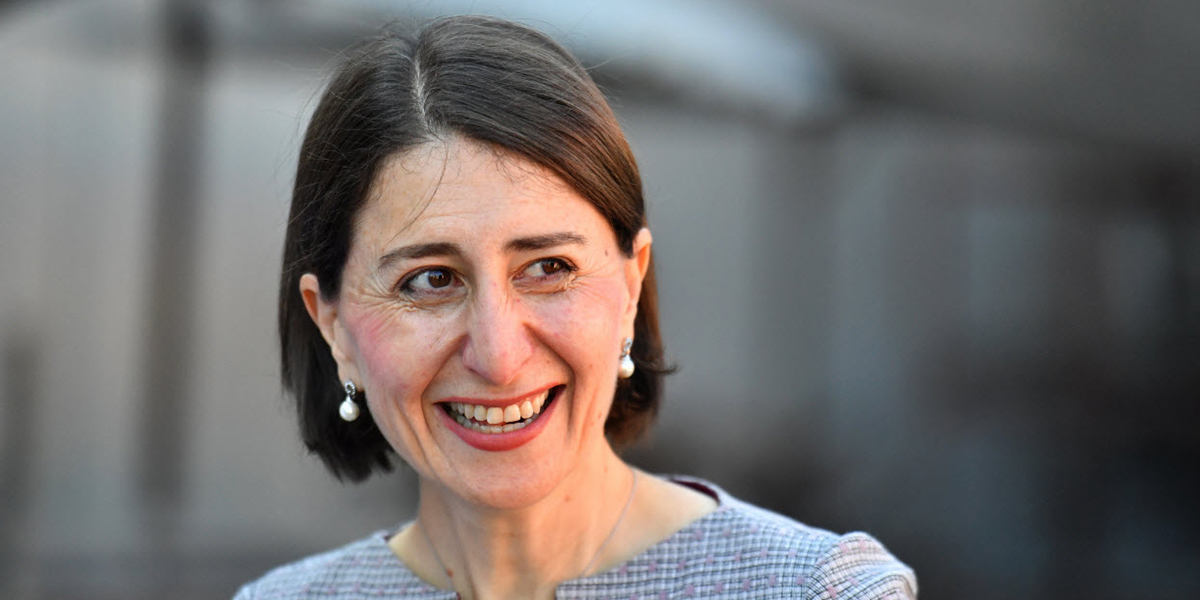
Berejiklian Conflict
Opinion + AnalysisBusiness + LeadershipPolitics + Human Rights
BY Simon Longstaff 14 OCT 2020
The next phase in the political life of NSW Premier, Gladys Berejiklian, depends on answers to three questions.
First, was her former relationship with Daryl Maguire not just ‘close’ but, in fact, an “intimate personal relationship”? Second, did the Premier make or participate in any decisions that could reasonably be expected to confer a private benefit on Mr Maguire? Finally, if the answer is ‘yes’ to each of these questions, then did Ms Berejiklian declare her interest in the Ministerial Register of Interests and seek the permission of Cabinet to continue to act?
Nothing else matters – not the Premier’s choice of friends, not her judgement … only the answer to those three questions.
The reason for this can be found in the NSW Ministerial Code of Conduct (the Ministerial Code) which has the force of Law. As might be expected, the Ministerial Code imposes obligations that are in addition to and are more onerous than, those applying to Members of Parliament.
The Preamble to the Ministerial Code of Conduct says, amongst other things, that, “In particular, Ministers have a responsibility to avoid or otherwise manage appropriately conflicts of interest to ensure the maintenance of both the actuality and appearance of Ministerial integrity.” With that end in mind, the Code not only takes account of the personal interests of individual Ministers – but also those of members of their families. It is here that the precise nature of the Premier’s relationship with Mr Maguire risks becoming a matter of public, rather than personal, interest. This is because the Ministerial Code of Conduct defines a “family member”, in relation to a Minister, as including, “any other person with whom the Minister is in an intimate personal relationship”.
‘Intimate’ is not a word used in the ICAC hearing to describe the Premier’s relationship with Mr Maguire.
Instead, it was agreed that theirs had been a “close personal relationship” – the precise nature of which was never explained. However, the evidence suggested that the words ‘close’ and ‘intimate’ may have been synonymous. If so, then Mr Maguire will have fallen within the definition of ‘family member’ during the period of his relationship with the Premier.
However, this (in itself) is neither here nor there. The nature of Ms Berejiklian’s relationship with Mr Maguire was (and should have remained) an entirely private matter up until the point where the Premier became involved in any Ministerial decision that “could reasonably be expected to confer a private benefit” on Mr Maguire. Only then did the public interest become engaged.
So, did any such decisions come before the Premier (acting alone or in Cabinet) during the period of her relationship with Mr Maguire? And if so, did she declare her interest as she is required to do under the Ministerial Code? The matter would then have been in the hands of her Cabinet colleagues as the final provision of the Code states that, “a ruling in respect of the Premier may be given if approved by the Cabinet”.
The Premier obviously knew something of Mr Maguire’s hopes and plans – even if she thought them to be fanciful. She knew of his financial exposure and the material impact that NSW Government decisions might have on his personal wealth. We also know that, for a time, Mr Maguire was at the centre of the Premier’s private affections. The issue is not that the Premier would have acted against the public interest for the benefit of Mr Maguire. I sincerely doubt that she would ever do so. It is most importantly a question of what was done to ensure the maintenance of both the actuality and appearance of Ministerial integrity.
The Premier had a formal obligation to declare her relationship with Mr. Maguire if, a) it was intimate, b) she was involved in deciding any matter that could reasonably be expected to confer a private benefit on him. It was then up to her Cabinet colleagues to rule on how she should proceed from there. Beyond settling these questions, the public has no legitimate interest in the private life of Gladys Berejiklian – except, perhaps, to extend to her our sympathy if she has been drawn inadvertently into a web of grief spun by a former friend.
Ethics in your inbox.
Get the latest inspiration, intelligence, events & more.
By signing up you agree to our privacy policy
You might be interested in…
Opinion + Analysis
Business + Leadership
BFSO Young Ambassadors: Investing in our future leaders
Opinion + Analysis
Business + Leadership
Ask an ethicist: How to approach differing work ethics between generations?
Opinion + Analysis
Business + Leadership, Relationships
Facing tough decisions around redundancies? Here are some things to consider
Opinion + Analysis
Business + Leadership, Relationships





